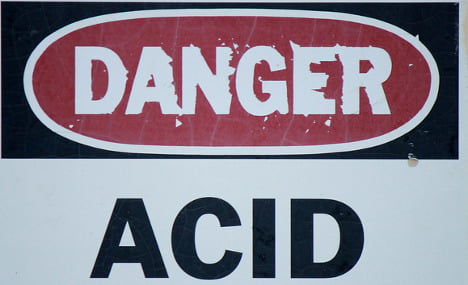The man’s nightmare experience on the hallucinogenic drug occurred in a neighbourhood of the northern city of Lille, called Fives, reported France 3 Nord Pas de Calais.
Firefighters were called out at around 5am after reports that a man had jumped from the second storey window.
He was said to be in a serious condition when they arrived and was still “very agitated”, according to reports.
His life however was not in danger.
His partner, who he apparently attacked, was also hospitalized with light injuries.
It is believed there were also others in the apartment when he “had his fit of madness”.
Reports did not say how or at what point in the evening the man severed part of his penis.
In 2013 The Local reported a controversial study by Norwegian scientists who concluded that taking LSD, or acid as it also known, had benefits.
Tales of debilitating acid flash-backs and permanently frazzled synapses are exaggerated, according to the scientific report, which concluded LSD use may even be beneficial.
However the 30-year-old Frenchman from Lille may have something to say about that as he nurses his wounds and recovers from a very bad trip.



 Please whitelist us to continue reading.
Please whitelist us to continue reading.
Member comments